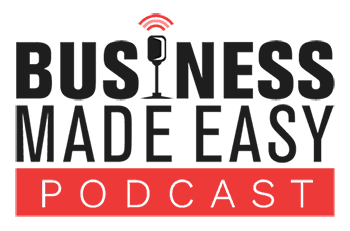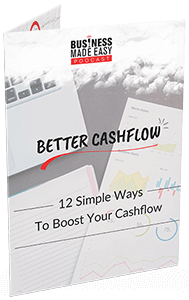This post is based on Episode 32 of our podcast.
Are you running a business or a hobby?
Either answer is valid, but today, I want to give you as many tools and processes as I can to help you decide which side of the fence you want to be on.
But first, let’s get clear about the distinction:
What’s the Difference Between a Business and a Hobby?
- A hobby is something you do in your leisure time for pleasure. Stamp collecting, horse riding, playing soccer on the weekend … they’re all hobbies. There’s no reason why blogging can’t be a hobby too, so long as that’s what you want.
- A business is designed to make money: it should provide a living for you. It’s a commercial activity, designed to provide business owners, stakeholders, and/or shareholders with appropriate profits and rewards for investing, taking risks, and working hard.
Why Does A Business Or A Hobby Sometimes Get Muddled Up?
This happens when someone has a hobby or interest that they turn into a business. They take something they enjoy doing on the weekend and aim to get to the point where they can give up their job to pursue this activity full time.
This doesn’t always happen with deliberate intent. Perhaps someone starts out making a product (such as handmade greetings cards) purely for friends and family, then they sell it at a small local store. They gradually move up to selling at larger markets and on Etsy, without there being a clear line between when this was a “hobby” and when it becomes a “business”.
The same thing can happen with services: for instance, a keen amateur photographer might be asked to take some headshots for a friend’s website, and might then start offering their services to friends of friends, in return for money.
There’s nothing wrong with that, but unfortunately, most people don’t ever truly create a proper business.

How Jane Turned Her Hobby Into a Business
“Jane” (I’ve changed her name and details of her business to protect her privacy) had a business making leather belts.
She came to me for help with her tax return; we got talking, and I found out that she’d started making leather belts as a hobby. She was happiest when she was punching leather and making belts – that’s what lit her up at a weekend.
She was making them and selling them at markets. People were showing interest, and she enjoyed doing it. She thought, “There’s a business here.”
She kept making those belts. She set up an online store, and kept selling them at markets too. But she didn’t have any plan or strategy to turn this into more of a commercial activity than it currently was.
Jane’s only gauge for success was whether she had money in the bank at the end of the day … and she did. So she gave up her job, and made belts full time, selling them online and in person.
When I did Jane’s tax return, I said, “Is this really a business or is it a hobby?”
She said, “It’s a business, it’s how I make my living.”
“Do you know how much money you’re making?” I asked. “And have you got an idea of how much you could make?”
She admitted, “No, I’ve never really sat down and thought about that.”
So that’s what we did together. We sat down and went through all the things I’m going to go through with you in a moment.
Jane realised that what she was had was a well-paying hobby, not a business.
Together, we organised her affairs and structured things so that she was truly the owner of a business – a fully functional, profitable business that had focus, vision, and strategy.
Why Do Business Owners Stick With Hobbies Instead of Running True Businesses?
Some new business owners are so passionate about what they’re making that they can’t step away from that to actually run the business. They’re working in their business, not on their business.
I meet a lot of bloggers, affiliate marketers, and people making money online and I see this happening a lot. They love their work, but they’ve never really set it up as a business. They don’t have a clear vision of where they want to be and how they’re going to get there.
That’s what we’re going to be digging into now.
Four Steps to Turning Your Hobby-Business into a True Business
Step #1: Write Down Your Vision for Your Business
Take out a piece of paper and write down a vision of your business. What do you want it to look like in three or five years’ time? (Don’t try to think ahead further than five years at this point.)
Once you clearly articulate what you want your business to look like, you can work back and put some strategies in place to make sure you get there.
If your vision is five years away, what do you want your business to look like in three years’ time? What about 12 months from now? What sort of journey will your business go on?
This is the start of a business plan: a business strategy document that you use as a guiding set of principles to help you achieve your vision.
Step #2: Create Your One-Page Business Plan
Some people think that business plans need to be long, complicated documents. They don’t! I have a system for working out a business plan on a single page, which I go through in detail in Episode 4 of the podcast.
If you don’t already have a business plan, head there now, listen to the podcast, and download the document to help you plan.
You might want to use a tool called SPEARE to create your business plan, which is a great word processing tool for tasks like this. You can create headings and drag and drop your paragraphs – so you can do a brain-dump of all your thoughts then move things around however you want. It’s cloud-based, too, so you can collaborate with other people or share it with them for feedback.
Step #3: Become the CEO of Your Business
When I talked to Jane, I found that she had one bank account that she used for all her personal and business transactions. All the money she made selling belts went into this account, and all the money she spent came out of this account.
But the problem with this approach is that if Jane has to stop making belts for any reason, she can’t pay the bills; there’s no money coming into her account.
You want your business to be able to function without you – it shouldn’t need your full input to keep the wheels turning.
When money goes into your business account, don’t touch it. It’s not your money: it’s your business’s money. You can pay yourself a regular dividend, but only once you’ve established that the business has enough cash to keep functioning, to pay its taxes, to take care of its bills, and so on.
Even if you’re a sole trader, you need to think of yourself as the CEO of your business, which we discussed in Episode 27 of the podcast. Your role is to be the steward of your business, guiding it to success.
Step #4: Stay On Top Of Your Accounts
You need to be on top of your business’s finances. This means having proper accounting records that you can check on a monthly basis to make sure your business is going in the right direction: it should be achieving goals, not just plodding along.
(If you just want a hobby, this doesn’t really matter: all you need is enough money to enjoy the activity you’re doing.)
Get key financial statements in place, like budgets and cash flows, so you can keep track of things. It’s easier – and a lot cheaper – to map it all out on paper before making the decision to go and spend money.
Back to Jane’s Story
Jane doesn’t make belts any more: instead, she has a system in place, where other people make belts for her. She’s got a proper online store. Her business is stable. She’s got a small team, and her business is growing nicely.
Your business could, soon, look the same.
Your Next Steps – To Get Clear Whether You're Running A Business Or A Hobby!
If you’ve got more of a hobby than a business, and you want to change that, here’s what you need to do:
- Get clear about your vision for your business – figure out where you want to be in three or five years’ time and work back from there
- Create a one-page business plan – you can find out more about that here; I recommend using SPEARE to construct this
- Become the CEO of your business – setting up a separate business bank account if you haven’t already done so
- Stay on top of your accounts – know what’s coming in each month, and how you’re doing in terms of your budget and cash flow
If you’ve got any questions or if you’re not sure how to move forward, just leave a comment below, or drop me a line at jason@businessmadeeasypodcast.com.






